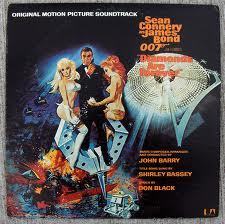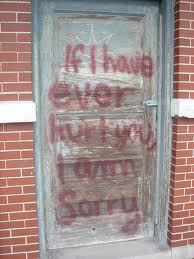P.A. Wilson's Blog, page 25
August 24, 2012
Authors who cross the road to mystery/thriller writing
 There are a few people who write mysteries but are better known for other genres. I’ve noticed that the number of these authors is increasing lately. I wonder if it’s because they find it easier to cross genres by self publishing or it’s simply a new energy in the genre.
There are a few people who write mysteries but are better known for other genres. I’ve noticed that the number of these authors is increasing lately. I wonder if it’s because they find it easier to cross genres by self publishing or it’s simply a new energy in the genre.
Two notable authors are below. I’d recommend either of them for a read.
Ann Voss Peterson
She came to my attention through a blog post – I can’t believe I’ve forgotten which. The big story was that she was sick of her miniscule payments from Harlequin and had decided to go into self publishing. I haven’t read her romances, but I decided to read the mystery they were touting. I did it because she was linked to Joe Konrath and I trust his recommendation.
Pushed Too Far was a gritty read that didn’t go over the line until it had to. Not for the squeamish, but a damn good tale. I’ll be checking out her other titles soon.
Nora Roberts -writing as J.D. Robb
When I picked up my first In Death book, I knew it was Nora in disguise, she’s very open about it now. The In Death series are set in the future with all the necessary technology changes. An ex scoundrel hunk and a future cop, team up – sometimes they are on opposing sides of an issue – and solve crimes.
It sounds a bit like a cozy with the husband and wife team, but it’s not. Eve Dallas is definitely the lead on every case. The crimes are nasty and the criminals are vicious. Adding in a dollop of sex and romance is what Nora does best. I’d recommend starting with Naked in Death because it’s number 1 in the series. The books are snack sized so a great summer read.
What are some of your favorite authors who have put their toe into the mystery/thriller world? Where do we start with their books?
August 22, 2012
The other Bonds. Why fictional spies are popular
So the cold war is long over, but somehow our love affair with super spies persists. Is it because we like to think there are people out there quietly keeping us safe from the nefarious villains?
The spies fall into three categories as far as I can see.
The urbane sophisticate
This spy will charm his way into the hearts of very villain’s entourage. Sean Connery is the Bon d who does this the best. Yes he can fight. Yes, he has the latest toys to defeat the evil forces. He needs a sexy sidekick, an EVIL opponent, and he always wins after a fight to the death. The other thing that drives him? World threatening stakes.
d who does this the best. Yes he can fight. Yes, he has the latest toys to defeat the evil forces. He needs a sexy sidekick, an EVIL opponent, and he always wins after a fight to the death. The other thing that drives him? World threatening stakes.
He’s a cad, but women love him because of his charm – and good looks. Men love him for his outrageous abilities.
I think this field of action is dominated by the Bonds – Sean Connery being my favorite, with Pierce Brosnan coming a close second.
The brooding agent
This is the Daniel Craig Bond. He has personal demons that get in his way. He brings a little bitterness to the sophisticated spy. I think he reflects our cynicism about the spy business because he sees the futility of his job. There’s never an end, there will always be someone greedy or sociopathic enough to want to take over the world.
The fundamentals are there: fighting, endurance, toys and charm. If they weren’t, he wouldn’t be a Bond.
We see this style in the Robert Ludlum spies too. Jason Bourne has to fight for his identity. This time the enemy is the people who created him. Yes, there’s a world threat, but the real enemy is the fact that Jason doesn’t know who to trust or how to deal with what he has done.
The workman agent
I don’t think we have a Bond for this category. This is the John le Carre spy. The one who goes to work everyday to sort through information looking for threats. I suspect this is the most realistic type of spy. Yes he (or she) can shoot and fight, but they tend to go silently through the world.
While their compatriots carry a lot of flash and violence in their stories, making them more like action heroes, these spy stories thrive on tension. A look, a lie, a whispered conversation replace the chase scenes and high tech weapons.
I think we like this kind of spy because it brings the threat closer to us. Not everyone is going to be a super villain a la Goldfinger, but down deep, we know everyone has their price.
A story in each I recommend in book or movie form
The urban sophisticate – Any of the James Bond books because they are less action adventure than they are spy stories. But, I also recommend Clive Cussler for this. Flood Tide will introduce you to the world-shaking stakes and charm of the Dirk Pitt series.
The brooding – The Osterman Weekend, Ludlum. A good example of a reluctant recruit with his own problems
The workman – Tinker, Tailor, Soldier Spy. Le Carre in either the book or the movie. It’s slow paced, but an amazing example of tension and betrayal.
What are your favorites?
August 18, 2012
Can you find inspiration anywhere?
It’s been a challenging week. I rarely have difficulty sitting down and writing, but this week I’ve been traveling and that usually leaves me feeling a little weary. Not so much the physical weary, the emotional weary. Not being in my own home and knowing I’ll need to do housework when I get home. Not being able to read on my Kindle for the whole flight. Waiting for planes. Waiting for luggage. Blah, it’s draining.
Inspiration for what?
There are all kinds of inspiration. Often creative people seek inspiration

for their art. Inspiration to write, to paint, to compose.
The other kind is to get going, to put bum in chair, to write a few more words.
When you are not trying to coax that creative spark, this need for inspiration might be to get on the bus, to get out of bed, to think of something new for dinner.
Finding the spark
The picture in this blog is my inspiration. The reality is much better than the picture – photos are not my talent. The lights shine on the water – they are from a paper plant on the turn of the river. The serenity of the water at night is calming. When I need a little kick to get things going, I keep looking out at this view.
The river always works because it doesn’t compete for my attention. I think that’s important. I can write with the TV on – as long as the writing is flowing. I work with music on because it distracts part of my brain that criticize my efforts. But, when I need to push myself to get going on something, the river is what I turn to because it doesn’t ask anything of me.
Is your inspiration near at hand? Or do you need something more divine – some floating muse who deigns to offer you help occasionally?
Can you force the inspiration?
I think you can look for inspiration in the world around you. I don’t think you can force it. I think that if you have to put effort into dragging inspiration out of something, it’s not going to work. Whether you are looking for a spark of creativity or a friendly shove to get something done, inspiration is the part that isn’t work.
If you are feeling the weary blahs, if you can see the edge of your rut well over your head, why not look around to find the spark?
August 16, 2012
Why is it so hard for some people to say I’m sorry?
 The LendInk controversy is still alive and kicking. This time it’s because most of the authors who went on a shark feeding frenzy haven’t been able to bring themselves to apologize.
The LendInk controversy is still alive and kicking. This time it’s because most of the authors who went on a shark feeding frenzy haven’t been able to bring themselves to apologize.
The details are on Raynfall’s site and Claire will keep the list updated as she gets more information.
Why apologize
Despite the famous people who couldn’t bring themselves to admit they had done wrong – I’m looking at you Mr. Nixon and you Mr. Clinton – there are two things about admitting you’ve made a mistake that I learned early on.
trying to pretend you didn’t make the mistake will always get you caught and in more trouble than the original mistake
saying sorry is a sure way to get forgiveness
How to do it
Be sorry. For these authors, you screwed up, we all do it.
Say you are sorry. Don’t wash it down with fancy words, you can keep those for your books
Say what you are sorry for. It could be that you are sorry you didn’t do your checking before you acted.
For added forgiveness
Tell us how you’ll try to fix what happened
Tell us what you learned from the mistake
Tell us how you plan to never make the same mistake again
An example
Many years ago I said something mean to a new kid in high school. I don’t even know her name – I’ll call her Mary. I’ve felt bad about it all this time. Here’s the apology.
Dear Mary, I don’t know if you even remember this, but I made a rather nasty comment to you in 1973. I was trying to be a smart ass and I didn’t think about what it might mean to you. I am really sorry that I was so callous.
I didn’t try to fix it, but I did learn a lesson about how to consider other people’s feelings. From that time on, I’ve always tried to think before I speak and remember that making someone feel bad doesn’t make me feel good.
See it’s not that hard.
August 14, 2012
Giveaway – HUBRIS, Book 1 of the Charity Deacon crime thrillers
 “I shot a video of the people on the sidewalk, mostly people trying to see and not see at the same time. Turning, I scanned across the street. A few cars were backed up at the intersection, but one in particular caught my attention. Two men stood beside a black SUV, both well dressed and well built. What made them stand out were the smiles they wore; identical and smug.”
“I shot a video of the people on the sidewalk, mostly people trying to see and not see at the same time. Turning, I scanned across the street. A few cars were backed up at the intersection, but one in particular caught my attention. Two men stood beside a black SUV, both well dressed and well built. What made them stand out were the smiles they wore; identical and smug.”
-Charity Deacon, HUBRIS
Get a free ebook copy of HUBRIS, book 1 of the Charity Deacon Investigations, through my new Rafflecopter giveaway.
Entering is as easy as a few clicks and likes. The more you are willing to do, the more entries you get. Click on ‘enter to win’ on the Rafflecopter buttons below. Tweet, follow or like me and you get one entry per action. If you want to go all the way – entrywise – post on your blog, subscribe to my newsletter or leave a comment here.
Rafflecopter gathers all the information, and lets me generate the winners randomly. I’ll need your email address to send you the ebook gift, but I’ll only keep it if you subscribe to the newsletter.
August 12, 2012
Book Reviews and Goodreads – helpful?
This is the last in my planned posts about Goodreads. I’m not going to talk about how people should review books, or whether you are obligated to review books. I’m going to talk about what I’ve observed as the best and worst of the three kinds of book reviewers, and why doing a review on Goodreads is helpful.
Why people review books

There are all kinds of blog posts and discussion forums about book reviews and why people post them. From what I’ve read, it seems to come down to three types of reviewers with individual purposes.
Professional reviewers
This group is interested in providing readers with a thoughtful analysis of the book plot, character and theme . At their best, they do just that and allow their readers to decide on the merit of the book.
At their worst, they can be literature snobs. slamming a book because it is in a popular genre or not nominated (at minimum) for a literary prize.
Review bloggers
Readers who are so passionate about books that they take the time to post reviews and opinions about their favorites. Their reviews range from thoughtful essays to emotional reactions. The most popular sites have teams of reviewers who take on all kinds of genres. At their best, they are a great source of information on new books and new authors as well as established authors and popular books.
At their worst, they can be riddled with spoilers and in-jokes that don’t help a reader to choose a new book to enjoy.
Readers who love to share
This group doesn’t have a review blog, but they are willing to post a review on Amazon, Smashwords, Kobo, B&N, Goodreads, Shelfari, or what ever they can find. At best these people are passionate and excited, leaving balanced and honest reviews of books they love – or hate.
At worst, they can just gush or hate. This means a prospective reader doesn’t get any information from the review to help them. If someone tells me they just LOVED the book, I need to know them to understand what that means to me.
A common issue to all
No matter who is posting the review – yes, you professionals, this includes you! – they make it about the author not about the book. Transferring your opinion of the book to the author is of no use to me as a reader.
Posting a review on Goodreads
Posting a thoughtful review anywhere is a kindness to readers and authors. Thoughtful doesn’t mean good, it means honest and informative. Doing it on Goodreads adds a little special value. If your favorite author has set themselves up properly, the review you post on their book – the one you put on the book, not on a review group – will feed through to Kobo automatically. This spreads your advice across a much wider audience.
I have some rules about reviews I post. As an author, I think there is a different light shone on my reviews.
If I can’t give 3 stars at least, I don’t post a review. I worry that I’ll look like I have an agenda.
If I post a review, I post it far and wide, but not on my blog. I think putting it on my blog looks like sneaky self promotion
I am guilty of a gushy review every once in a while. I’m human after all.
So, what’s your take on reviews. Do you have pet peeves? Do you use reviews to find books?
August 10, 2012
How to get free books through Goodreads.
Free books are a great way to try out new authors. Goodreads has two basic ways to get free books. Giveaways and giveaways. Confused?
Giveaways the group

If you join the Giveaways group, you can browse for what the authors have posted. Posted by month, you’ll find ebooks, print books, swag and ARC (advanced reader copies). There’s not a lot there right now, but the variety is solid.
Giveaways the official site
If you look at the drop down beside explore on the top, you’ll find giveaways. This is a managed promotion and only for print books published within the last 6 months – or about to publish. The author puts up a giveaway of a specific number of books, you sign up for a chance, and the Goodreads team picks the winners.
When you get a free book
There’s no obligation for you to leave a review anywhere for a giveaway, although it’s much appreciated.
August 8, 2012
Goodreads listopia – how to find books
A short post today on the topic of Goodreads listopia. There are two ways to recommend a book on Goodreads. Do a review, an honest one, or vote on listopias.
 Quick note on reviews
Quick note on reviewsIf you leave a review on Goodreads, the author can make sure it flows through to some of the online retailers. Leaving a review is as simple as giving the book some stars or writing a thoughtful analysis.
Listopias
They can be found on the drop down next to explore at the top of the screen. Or here.
The great thing about these lists is you can vote on books that are already there and add books to someone’s list. You can also create your own lists. I created Women who Solve Crimes a few weeks ago and now there are 70 books on the list.
If I am looking for a good book in a specific genre, I go to the listopia and see what people are voting for.
August 6, 2012
Goodreads: 5 first steps for readers
GoodReads is a great place to be if you want to find book recommendations, get freebies, and have a reading community. Like a lot of great tools, it can be difficult to get started. The next series of blog posts will give tips on how a reader can get started with GoodReads. I’m sure I don’t know all of them, so I look  forward to everyone’s additional advice.
forward to everyone’s additional advice.
Step one: sign up
Go on over to GoodReads.com, sign up and create your profile. I f you are new to profiles, I recommend you complete as much information as you feel comfortable with. The more information you put up, the easier you will be to find and when someone wants to follow you, they’ll know who you are and how you fit with their tastes.
Step two: add your books
The depth you go to on this is up to you. When I started, I added the books I was reading at the time, and now I add books as I buy them, or download them for free.
Just go ahead and search for your book, then click on the one you want from the list (if your book doesn’t show up, you can ask the librarians to add it. And, you can become a librarian if you want to). Click on the cover and you’ll see a button to add the book to your library – you get three shelves, read, to read and currently reading. You can add shelves as you please.
Step three: join groups
There are thousands of groups on GoodReads. This is a site for readers who love books and talk about books. Click on the Groups link on the top and pick your topic. If you can’t find what you want, just create a new group.
Step four: follow people
Click on the drop-down beside the word Explore on the top, You’ll find People down near the bottom. Click on that and you’ll find a page of people on line, a list of people categories and a button to find friends.
I check out people in the community who belong to groups I joined, people who rate books I like, and people who vote on lists I like. More on lists in the next post.
Step five: find friends
On the people page, check out the Find Friends button. You can instruct GoodReads to search through your Facebook, email and Twitter lists. The search will categorize your friends and let you choose which ones to invite.
I’ll post some more tips over the next week or so. If you have any tips to add, let me know in the comments, and I’ll compile them into posts.
August 4, 2012
What happens when you don’t see the ending coming?
 I ask this question because I think there are so many reasons that endings don’t satisfy, but the biggest reason is that the author didn’t set you up for the ending they gave you. Even those endings you wish were different should be set up well.
I ask this question because I think there are so many reasons that endings don’t satisfy, but the biggest reason is that the author didn’t set you up for the ending they gave you. Even those endings you wish were different should be set up well.
When you read a book, the author should lay all the clues throughout the story for you to believe the ending. The clues in the best stories are only apparent when you have finished reading. That moment of ‘of course’ comes because you’ve absorbed all the little hints and odd happenings.
A great example
To me The Sixth Sense was a great example of this. Whether you guessed early, or just before it became apparent, or after the end, all of the clues were there.
I watched this long before I learned the craft of writing and I guessed just before the ‘surprise’ was revealed. I’m the kind of reader/viewer who is willing to go along for the ride so I didn’t look for the clues. As soon as I guessed, all of the pointers ran through my head. But nothing as I watched jumped out and said “look here” or “don’t look here”. There was always an easier interpretation of what I saw.
A not so great example
By the same director, Unbreakable. I understand some people were surprised at the outcome. I’m not a comic book fan, but I could see the ending coming from almost the beginning. I think it was because I couldn’t come up with an alternate reason for all the things that were happening.
The question
What are your favorite endings? Did the clues echo from the story for you?



